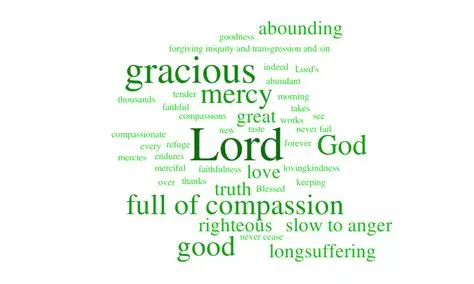BREAKING THE CYCLE FROM SIN TO RESTORATION
THE SEED
“The Lord is compassionate and gracious, slow to anger, abounding in love.” Psalm 103:8
Judges 10 highlights Israel’s recurring cycle of sin, punishment, repentance, and deliverance. The Israelites turned from God to worship false gods. Their idolatry led to oppression by the Ammonites and Philistines for eighteen years. This suffering was a direct consequence of their disobedience. When they cried out for help, God reminded them of their repeated unfaithfulness and told them to seek help from the gods they had chosen. This sobering response shows that while God is patient, His patience should not be taken for granted. Persistent rebellion without true repentance can lead to painful consequences. However, God’s justice is balanced with mercy. The Israelites demonstrated genuine repentance by removing their idols and serving the Lord. This act moved God’s heart, and He prepared to rescue them. Today, our “idols” may not be carved images but anything; money, status, and relationships that take God’s place. True repentance goes beyond words; it’s a decision to turn back to God. No matter how often we fail, His love remains. When we return sincerely, God is always ready to restore us, but we have to be careful not to form a habit of falling and rising for the day of the Lord is like a thief in the night.
BIBLE READING: Judges 10:10–18
PRAYER: Heavenly Father, I pray for Your power to break every cycle of sin drawing me into idolatry. Restore me to wholeheartedly serve You consistently. Amen
DÍDÍ ÀYÍKÁ LÁTI INÚ ẸṢẸ SÍ ÌMÚPADÀBỌ̀SÍPO
IRUGBIN NAA
“Olúwa ni aláàánú àti oore-ọ̀fẹ́, ó lọra sí ìbínú, ó kún fún ìfẹ́.” Orin Dáfídì 103:8.
Àwọn Onídàájọ́ ori kewa fi àyíká déédé Ísráẹ́lì ti ẹ̀ṣẹ̀, ìjìyà, ìrònúpìwàdà, àti ìgbàlà ṣe àfihàn. Àwọn ará Ísráẹ́lì yí kúrò lọ́dọ̀ Ọlọ́run láti sin àwọn òrìṣà èké. Ìbọ̀rìṣà wọn yọrí sí ìnilára láti ọwọ́ àwọn ará Ámónì àti àwọn Filístínì fún ọdún méjìdínlógún. Ìyà yìí jẹ́ èsì tààrà àìgbọràn wọn. Nígbà tí wọ́n kígbe fún ìrànlọ́wọ́, Ọlọ́run rántí wọn nípa àìláṣẹ ọ̀pọ̀lọpọ̀ wọn ó sì sọ fún wọn láti wá ìrànlọ́wọ́ lọ́dọ̀ àwọn òrìṣà tí wọn ti yàn. Ìdáhùn tí ó ta léèlò yìí fihàn pé bí ó tilẹ̀ jẹ́ pé Ọlọ́run ní sùúrù, sùúrù rẹ̀ kò yẹ kí á gbà fún gbèsè. Ṣíṣe ọ̀tẹ̀ títí láìsí ìrònúpìwàdà tòótọ́ lè yọrí sí àwọn èsì tí ó ní ìrora. Ṣùgbọ́n, idájọ́ Ọlọ́run ní ìwọ̀ntúnwọ̀nsì pẹ̀lú àánú. Àwọn ará Ísráẹ́lì fi ìrònúpìwàdà tòótọ́ hàn nípa mímú àwọn òrìṣà wọn kúrò wọ́n sì sin Olúwa. Ìṣe yìí fọ́ ọkàn Ọlọ́run, ó sì múra láti gbà wọ́n là. Lóní, “àwọn òrìṣà” wa le má jẹ́ àwọn àwòrán tí a gbẹ́ ṣùgbọ́n ohunkóhun; owó, ipò, àti àwọn àjọṣe tí ó gba ipò Ọlọ́run. Ìrònúpìwàdà tòótọ́ kọjá ọ̀rọ̀; ó jẹ́ ìpinnu láti yí padà sí Ọlọ́run. Láìka bí a ṣe kùnà tó, ìfẹ́ rẹ̀ wà síbẹ̀. Nígbà tí a bá padà ní tòótọ́, Ọlọ́run máa ń múra láti mú wa padà bọ̀ sípò, ṣùgbọ́n a gbọ́dọ̀ ṣọ́ra láti má ṣe jẹ́ kí ìwà ìṣubú àti ìdìde di àṣà nítorí ọjọ́ Olúwa dàbí olè ní òru.
BIBELI KIKA: Àwọn Onídàájọ́ 10:10–18.
ADURA: Bàbá Ọ̀run, mo gbàdúrà fún agbára Rẹ láti já gbogbo àyíká ẹ̀ṣẹ̀ tí ó fà mí sínú ìbọ̀rìṣà. Mú mi padà bọ̀ sípò láti fi gbogbo ọkàn sin Ọ́ nígbà gbogbo. Àmín.
